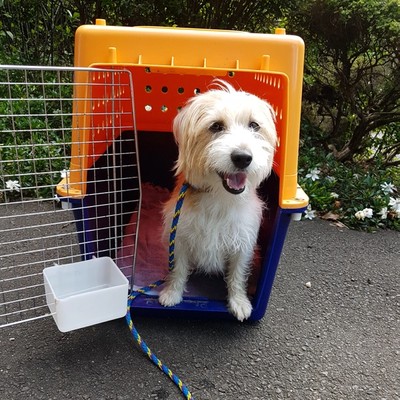The Crate Debate - The Pros and Cons of Crate Training
If you have looked into crate training your puppy but don’t want to put your new best friend in a cage, you are not alone. This is a natural and understandable reaction. You wouldn't like to be put in a cage, so why would you do it to your new best friend?
But perhaps if we were to suggest you give your puppy their own den, a place to feel secure, to retreat from the household commotion and relax, you will see crate training differently.
Used correctly and introduced positively, that’s exactly what a crate becomes. It allows an over-tired nippy pup the chance to unwind in peace. It becomes a place of comfort, filled with favourite smells, calming toys, and cosy bedding, all things that encourage rest and independence. Importantly it teaches self-settling without having you in sight, a skill that will drastically reduce the chances of separation anxiety problems developing in the future.
Used correctly and introduced positively, a crate can become a place of comfort to encourage rest and independence, helping reduce chances of separation anxiety problems.
A crate can also assist you in overcoming some common puppy training challenges you may be facing right now. Since most dogs hate to soil their ‘den’, a crate can greatly assist overnight toilet training. Its security encourages sleep, where you may have had pacing and crying, and allows you to leave for short outings confident that both your pup and your furniture will be in one piece when you return.
If you purchase a crate big enough to meet your pup’s predicted growth, you will have a useful and portable home away from home (most crates fold flat). In addition, your dog will always have the comfort of familiar surroundings when travelling with you, is more likely to be accepted into private accommodation, and will be secure overnight at a campsite.
2020 has taught us life can be unpredictable. Sudden changes in circumstances can stress us and our pets. However, these difficult times can be made a little easier if you know that your dog will readily accept confinement, be it at a veterinary clinic, boarding kennel, or even an emergency evacuation centre.
If you would like to learn more about crate training your pup, please get in touch with us.

